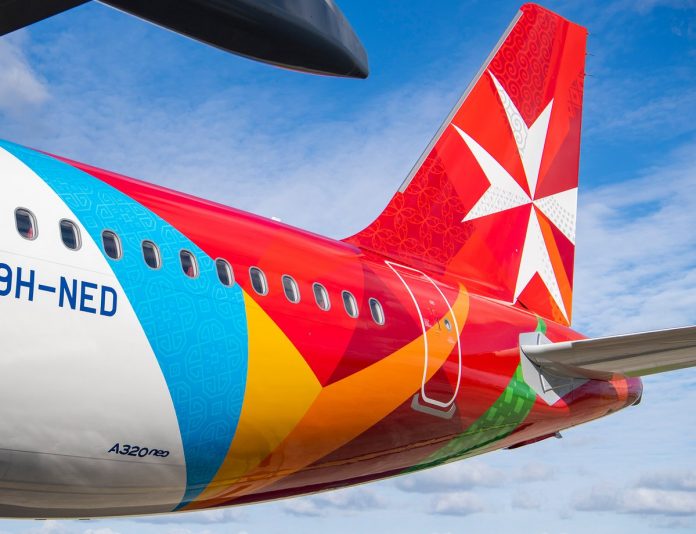With reference to reports that appeared in sections of the media, KM Malta Airlines complies strictly and rigorously with international aviation safety standards and with European passenger travel regulations.
EU Regulation 1107/2006 states that disabled persons and persons with reduced mobility should be accepted for carriage and not refused transport on the grounds of their disability or lack of mobility, except for reasons which are justified on the grounds of safety and prescribed by law.
Before accepting reservations from disabled persons or persons with reduced mobility, airlines, their agents and tour operators are required to make all reasonable efforts to verify whether there is a reason which is justified on the grounds of safety, and which would prevent such persons being accommodated on the flights concerned.
To give disabled persons and persons with reduced mobility opportunities for air travel comparable to those of other citizens, airlines are required to provide assistance at the airport as well as on board aircraft, by employing the necessary staff and equipment. In the interests of social inclusion, the persons concerned should receive this assistance without additional charge.
KM Malta Airlines provides persons with reduced mobility with the required assistance whenever this is requested at all airports at no additional charge.
The same regulations provide that in situations where the medical condition of a passenger is such that there is reasonable doubt that the passenger can complete the flight safely without requiring assistance during the flight, an airline may decide to carry out an assessment whether the passenger is fit-to-fly and request information to support that assessment.
It is only in these special cases that KM Malta Airlines, and other airlines, may require passengers to procure a certificate from the airline’s medical advisers that the passenger is fit to fly. The charge of €15 is made by the medical doctor carrying out such assessment and not by the airline. This is also required by the IATA safety standards for bookings and registering of passengers with wheelchairs (WCHC).
MEDIF are the set of forms required by the IATA Medical Manual to manage passengers requiring special assistance and medical clearance. MEDIF has two attachments: Attachment A (Information Sheet for Passengers Requiring Special Assistance) and Attachment B (Information Sheet for Passengers requiring medical clearance).
Attachment A contains details of the air itinerary of the passenger and describes the special arrangements or assistance required by the passenger. The responses given to
the questions in Attachment A will determine if a medical clearance is required by the airline. A medical clearance is required by the airline for passengers with recent and/or unstable medical conditions.
Attachment B provides the airline with the specific medical data on the passenger and the special arrangements recommended by its medical adviser. Attachment A of the MEDIF must be completed, as early as possible, by the airlines or by the travel agent/booking office. Attachment B must be completed by the medical adviser. IATA advises that it is of utmost importance that the medical adviser gives precise and factual information and not merely a diagnosis together with a statement that, in his opinion, the patient is fit to travel by air.
KM Malta Airlines has not introduced any new charges or changed practices regarding persons with reduced mobility. The airline does not charge passengers requiring wheelchair assistance before departing and after arrival or passengers requiring help to embark or disembark the aircraft.
Moreover, as a full member of IATA, KM Malta Airlines supports the UN Convention on the Rights of Persons with Disabilities (CRPD) which requires inter alia airlines to take appropriate measures so that persons with disabilities have access, on an equal basis with others, to the physical environment, to transportation, to information and communication including information technologies and systems, and other facilities and services open or provided to the public.










